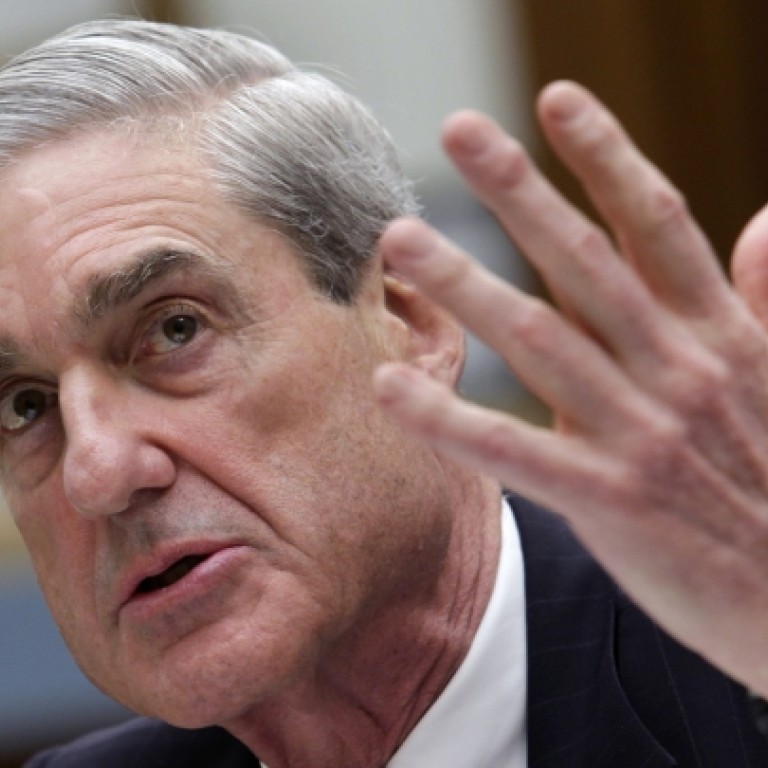
US leaker Snowden under criminal investigation: FBI
Head of National Security Agency tells Senate committee that electronic surveillance has helped thwart dozens of terrorist attack
FBI Director Robert Mueller yesterday defended a pair of controversial US government surveillance programmes, telling Congress that leaking information on them harms national security.
In his last appearance as FBI director before the House Judiciary Committee, Mueller said that terrorists tracked leaked information "very, very closely" and that because of leaks "we lose our ability to get their communications" and "we are exceptionally vulnerable."
What we're doing to protect American citizens is the right thing
Mueller confirmed the programmes' legality. "The legality has been assured by the Department of Justice," he said, and the Foreign Intelligence Surveillance Court "ruled on these two programmes, monitors these two programmes and has assured the legality of the efforts undertaken in these two programmes."
The comments by Mueller, who will depart the FBI in September after 12 years, were his first in public since the classified surveillance programmes were exposed by Edward Snowden, a former US National Security Agency technology contractor now in hiding in Hong Kong.
The revelation that the NSA is collecting millions of US phone records along with digital communications stored by nine major internet companies has sparked a national debate over whether the Obama administration, in its efforts to thwart terrorism, has overstepped proper bounds by using intrusive surveillance methods.
The administration also has confirmed the existence of a separate programme, called Prism, that monitors the internet activity of foreigners believed to be located outside the US and plotting terrorist attacks.
Representative John Conyers, the committee's top Democrat, expressed concern that the two programmes were too far-reaching. "It's my fear that we are on the verge of becoming a surveillance state," he said.
On Wednesday, the head of the NSA defended his agency's electronic surveillance programmes, saying they have helped thwart dozens of terrorist attacks and that their recent public disclosure has done "great harm" to national security.
Facing his first public grilling since the revelations, General Keith Alexander sought to aggressively rebut congressional and other criticism of the administration's anti-terrorism tactics.
Alexander told sceptical members of the Senate Appropriations Committee that his agency was doing exactly what Congress authorised after the attacks of September 11, 2001.
Alexander said he welcomed debate over the legal justification for the programmes because "what we're doing to protect American citizens is the right thing". The agency "takes great pride in protecting this nation and our civil liberties and privacy" under the oversight of Congress and the courts. "We aren't trying to hide it," he said. "We're trying to protect America."
But in his spirited exchanges with committee members, Alexander said he was seeking to declassify many details about the programmes now that they had been leaked by Snowden.
Senator Dianne Feinstein, the Democrat chairwoman of the Senate Intelligence Committee, was the first to disclose the records were eventually destroyed.
At the hearing, Feinstein also revealed that investigators had used the database for purposes beyond countering terrorism, suggesting it might have also been employed in slowing Iran's nuclear programme.
Analysts could look at the domestic calling data only if there was a reason to suspect it was "actually related to al-Qaeda or to Iran", she said, adding: "The vast majority of the records in the database are never accessed and are deleted after a period of five years. To look at or use the content of a call, a court warrant must be obtained."
In a robust defence of the phone programme, Alexander said it had been critical in helping to prevent "dozens of terrorist attacks" both in the United States and abroad and that the intelligence community was considering declassifying examples to better explain the programme.
Alexander said he had "grave concerns" about how Snowden had access to such a wide range of top-secret information, from the details of Prism to a presidential document on cyberstrategy. He said the entire intelligence community was looking at the security of its networks - something other government officials vowed to do after the WikiLeaks disclosures three years ago.
Under the Prism programme, the NSA collects information from US internet companies like Google without individualised court orders if the request is targeted at noncitizens abroad. That programme derives from a 2008 surveillance law that was openly debated in Congress.
As part of the review from the fallout of leaks, intelligence agencies will seek to determine whether terrorist suspects have increased their use of code words or couriers, have stopped using networks like Facebook of Skype, or have "gone silent".
